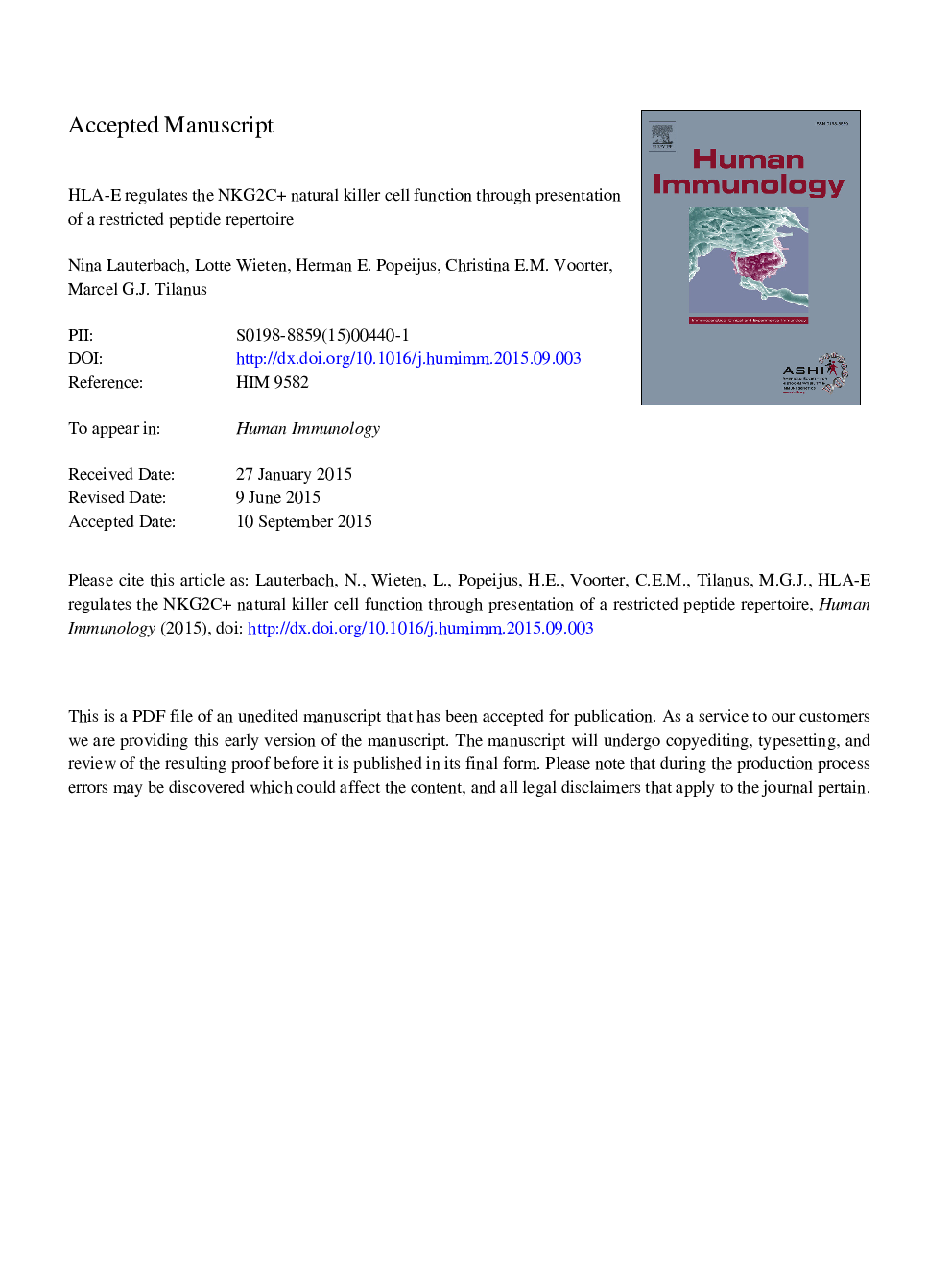| کد مقاله | کد نشریه | سال انتشار | مقاله انگلیسی | نسخه تمام متن |
|---|---|---|---|---|
| 6116670 | 1216369 | 2015 | 26 صفحه PDF | دانلود رایگان |
عنوان انگلیسی مقاله ISI
HLA-E regulates NKG2C+ natural killer cell function through presentation of a restricted peptide repertoire
دانلود مقاله + سفارش ترجمه
دانلود مقاله ISI انگلیسی
رایگان برای ایرانیان
موضوعات مرتبط
علوم زیستی و بیوفناوری
ایمنی شناسی و میکروب شناسی
ایمونولوژی
پیش نمایش صفحه اول مقاله

چکیده انگلیسی
NK cells interact with the HLA-E molecule via the inhibitory receptor NKG2A and the activating receptor NKG2C. Hence, HLA-E can have a dual role in the immune response. In the present study, we aim to investigate the functional consequences of HLA-E for NKG2A and NKG2C expressing NK cell subsets by using a panel of HLA-E binding peptides derived from CMV, Hsp60 and HLA class I. PBMC derived from healthy subjects were used as targets for isolated NK cells and NK cell activation was examined by analysis of the expression of the degranulation marker CD107a. Peptide induced HLA-E expression inhibited degranulation of NKG2A+ NK cell subsets with almost all peptides, whereas NKG2Aâ NKG2C+ NK cell responses were enhanced only after incubation with four peptides; 1.3-fold with CMV(I), A80 and B13 and 3.2-fold with HLA-G derived peptide. In addition, the HLA-E:G peptide complex triggered NKG2C receptor internalization, as evidenced by reduction in the percentage of NKG2C+ NK cells when incubated with the peptide, which could be restored by addition of Bafilomycin. In conclusion: in contrast to NKG2A, NKG2C is regulated by HLA-E only when HLA-E is in complex with a restricted peptide repertoire, especially in combination with the HLA-G leader peptide.
ناشر
Database: Elsevier - ScienceDirect (ساینس دایرکت)
Journal: Human Immunology - Volume 76, Issue 8, August 2015, Pages 578-586
Journal: Human Immunology - Volume 76, Issue 8, August 2015, Pages 578-586
نویسندگان
Nina Lauterbach, Lotte Wieten, Herman E. Popeijus, Christina E.M. Voorter, Marcel G.J. Tilanus,